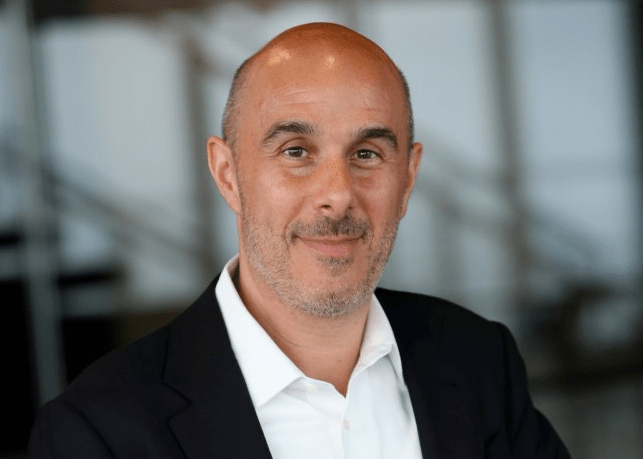The UK Chancellor’s recent call for Britons to move from cash to equities and the pledge to rebalance regulation in favour of driving more retail investment and economic growth have the potential to bring about historic change for the country.
While these developments present tremendous opportunity, there are no shortcuts to building a solid foundation for lasting change. The United States faced a similar challenge in the 1970s. There, a series of pivotal shifts reshaped attitudes toward saving, investing, and wealth accumulation, and redefined what it means to be an investor actively participating in a nation’s economic growth.
A central thread in the U.S. journey toward mainstream investing has been putting the individual investor at the heart of everything. This means creating investment products, customer experiences, industry standards, and regulations that encourage greater engagement and participation, while providing the education, support, and safeguards investors need to succeed. Here’s how these lessons can be applied in the UK.
Make investing more accessible to a wider range of people
Schwab’s story is central to the U.S.’ transition to becoming more of a nation of investors. When the Securities and Exchange Commission (SEC) deregulated brokerage commissions in 1975, most firms seized the opportunity to raise their fees, but Schwab went the other way – we cut them. This decision became a catalyst for a sweeping cultural shift that made investing a bigger part of American life than ever before. We also invested in education, tools, and support resources to guide investors into a new world of financial independence, showing them the potential of long-term investing.
Currently, 62% of Americans own stocks either directly or indirectly, and roughly half of the private sector workforce saves for retirement through 401(k) investment accounts. This broad participation stems from decades of policy, cultural reinforcement, and institutional support focused on access and engagement.
Understand the historical divergence — and what it means today
The divergence between the U.S. and UK investing cultures began in earnest during the Reagan-Thatcher era. Both leaders championed deregulation and market liberalization, but the outcomes differed. In the U.S., the deregulation of brokerage commissions in 1975, followed by the rise of 401(k) plans and retail brokerage firms, created a fertile ground for mass-market investing. Meanwhile, in the UK, similar reforms did not translate into widespread retail participation. The cultural embrace of investing as a tool for personal and national prosperity took deeper root in the U.S., reinforced by policy, media, and institutional support. Understanding this divergence is key to shaping a UK model that encourages long-term engagement and economic ownership.
Help people see themselves as investors
In many ways, the UK today is in a fantastic position – and has far more resources and advancements in place compared to the U.S. in the mid-1970s. It has more investment platforms and products than ever before, there are more resources for people looking to learn about investing and conduct investment research, and the UK’s standing as a fintech leader along with its innovative tax-wrapper offering, the Individual Savings Account, or ISA, all provide a strong foundation on which to build.
But access without awareness, guidance, or perhaps most importantly, an understanding of why investing matters can be overwhelming. No wonder 90% of Britons surveyed in the FCA’s Financial Lives 2024 study reported holding cash savings, but only 35% held investments. This is down from 37% in 2022, which suggests that while the infrastructure for investing exists, the confidence and cultural cues that encourage individuals to participate in the financial markets — and see where they themselves fit in — are still lacking.
Help people understand the opportunities that come with participating in their country’s economic growth
Beyond discussions about the individual investor, there also needs to be a wider reflection on businesses and the economy. The U.S. has long celebrated entrepreneurship, innovation, and risk-taking, creating a virtuous cycle: entrepreneurs start companies, Venture Capitalists back ideas, and the public see the market as a place of opportunity. Companies like Amazon and Apple didn’t just transform industries, they inspired millions to see investments as a path to prosperity.
Yet, it’s important to acknowledge that the UK’s productivity has remained largely stagnant since the global financial crisis. As Adam Posen recently noted on Bloomberg’s “Odd Lots” podcast, this prolonged flatlining has dampened investor sentiment and economic dynamism. But this is precisely why a cultural shift toward broader retail investment is so critical. When individuals feel empowered to invest, they become more engaged in the economy’s future. That engagement can help catalyse innovation, entrepreneurship, and ultimately, productivity growth. The U.S. faced similar headwinds in the 1970s, and it was the rise of retail investing and entrepreneurial optimism that helped turn the tide.
Reimagine the investing ecosystem to put what’s best for individuals first
Creating more retail investors in the UK requires a simplified investing journey: clear pricing, straightforward products, easier customer experiences and a relentless focus on individuals’ needs. It also means working with regulators to enact smart regulation that balances accessibility and participation while safeguarding against risk. The UK’s regulatory reset is a chance to design a system that is not only safe but intuitive, inclusive, and built for long-term growth.
This opportunity is cause for optimism.
As someone who works across borders and interacts with UK investors, I see enormous potential for meaningful change. The appetite and much of the infrastructure are there. Now a cultural shift is needed — one that fosters a sense of ownership in the economy. To achieve this, Britain doesn’t need to copy the U.S. model, but it can learn from it. Doing so won’t just build a stronger economy, it will build a nation of confident, engaged investors, working together to achieve better outcomes.
To quote Chuck Schwab, who played an integral role in making retail investing vastly more accessible to individual investors in the U.S., “investing is an act of optimism.”
***
Investing involves risk, including loss of principal.
This material is intended for informational purposes only.
© 2025 Charles Schwab & Co., Inc. All rights reserved. Member SIPC.
0825-21L6
The opinions expressed in Fortune.com commentary pieces are solely the views of their authors and do not necessarily reflect the opinions and beliefs of Fortune.












